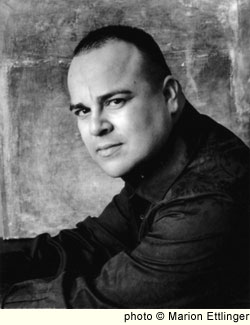The National Book Critics Circle regularly posts a list of five books a critic believes reviewers should have in their libraries. We recently heard from journalist and critic Laura Miller. Here are five books she nominated.
I’m under the impression that most literary critics are primarily interested in writing, and while I find that subject fascinating, I am probably more interested in reading. Much of the time, I’d rather read an awkward or halting description of how someone was affected by a book than a perfectly accomplished consideration of the author’s technique. Fortunately, you don’t really have to choose between the two.
The Dyer’s Hand and Other Essays by W.H. Auden (1962)
There are many fine things in this collection of critical essays by one of the 20th century’s great poets, but I like it best for “Reading,” which is a series of astute observations and aphorisms on a mysterious, transformative practice. “Pleasure is by no means an infallible critical guide,” Auden writes at one point, “but it is the least fallible.”
An Experiment in Criticism by C.S. Lewis (1961)
This is a little-known long essay by the author I focused on in my own book, The Magician’s Book. Lewis was not a particularly adventurous thinker, but Experiment was atypically daring for him. It proposes that we might best judge the literary merits of a book not by how it is written but by how it is read. Lewis expands on the characteristics of literary reading and suggests a critical humility and curiosity that’s all too rare: “If … we found even one reader to whom the cheap little book with its double columns and the lurid daub on its cover had been a lifelong delight, who had read and reread it, who would notice, and object, if a single word were changed, then, however little we could see in it ourselves and however it was despised by our friends and colleagues, we should not dare to put it beyond the pale.” This book also contains the most (unconsciously?) erotic description of reading a great work that I’ve ever encountered.
The Biographical Dictionary of Film by David Thomson (1975)
I may have learned more from film writers like Thomson and Pauline Kael than from other literary critics. I admire Kael’s vernacular style and militant resistance to pretension but give Thomson the edge for addressing how movies (and by extension, other works of art) infiltrate our psyches and reshape our identities. His Biographical Dictionary is already unconventional in its nonchalant refusal to observe the decorum of the reference book form, but the entry on James Dean, which features a cameo of the theater in England where he first saw Rebel Without a Cause as a teenager, was a revelation to me. The way that artworks mold us is a significant part of their meaning, however idiosyncratic those experiences may be, and Thomson claims that meaning as one of criticism’s rightful topics for discussion.
Anatomy of Criticism by Northrop Frye (1959)
This book is both impressive and a bit cracked, an attempt to erect a typology of all literature, as if criticism were the equivalent of lepidoptery. However, Anatomy is also the most prescriptive title on this list, because too many contemporary critics have a distorted view of literary genre. They’re under the ahistorical misperception that the novel and the lyric poem represent the apotheosis of the art, the standard against which all other forms of writing must be judged. Frye is an excellent remedy for this narrow view, explaining how each form has its native themes, motifs, methods of handling character and narrative, and so on. A good critic needs to know how to evaluate a book for what it’s meant to do, not for what it doesn’t even want to do.
Coleridge by Richard Holmes (Vol. 1, 1989; Vol. 2, 1998)
This is my favorite literary biography, and therefore stands in for my belief that a grasp of the author’s life and historical context can only enrich your experience of his or her work. Beyond that, Samuel Taylor Coleridge, as the founder of English Romanticism, had and continues to have an immense influence on our culture. And beyond that, this two-volume bio is simply enthralling in its own right.
Laura Miller is a journalist and critic and the author of The Magician’s Book: A Skeptic’s Adventures in Narnia (Little, Brown, 2008). She is a cofounder of Salon.com, where she is currently a staff writer, and is the editor of The Salon.com Readers Guide to Contemporary Authors. A regular contributor to the New York Times Book Review, she has also written for The New Yorker, the Los Angeles Times, Time, and other publications. She lives in New York.


